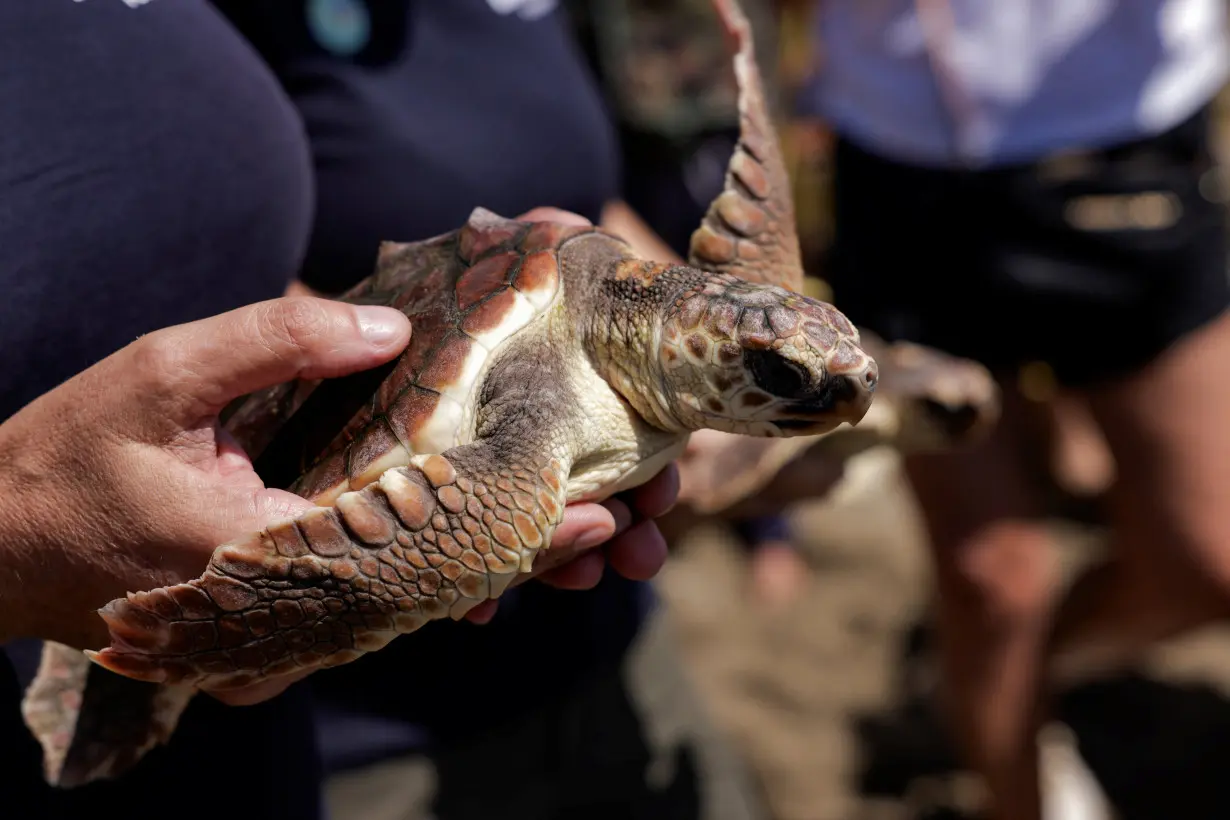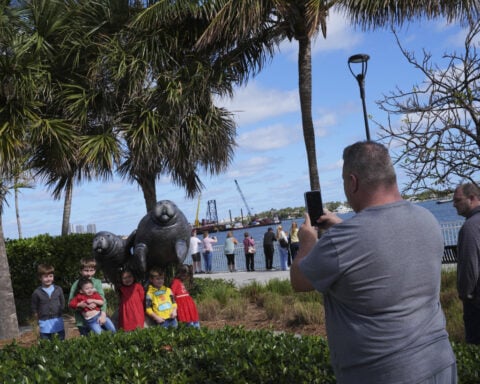By Jon Nazca
MARBELLA, Spain (Reuters) - To the delight of curious beachgoers, marine biologists released dozens of young loggerhead sea turtles into the wild near Marbella in southern Spain on Tuesday, almost a year after a nest containing 69 eggs was discovered on a nearby beach.
Ten of them carry GPS trackers, which will allow scientists to know the movements of the vulnerable species for six months, before the trackers fall off as the shell expands, said Juan Manuel Gavira, a biologist at the Seville Aquarium, which took care of some of the turtles until their release.
"We care for them in different centres for a year, multiplying their chances of survival by 20. Over this time they gain weight, get stronger and bigger and then are returned to the sea with a better chance to survive," he said.
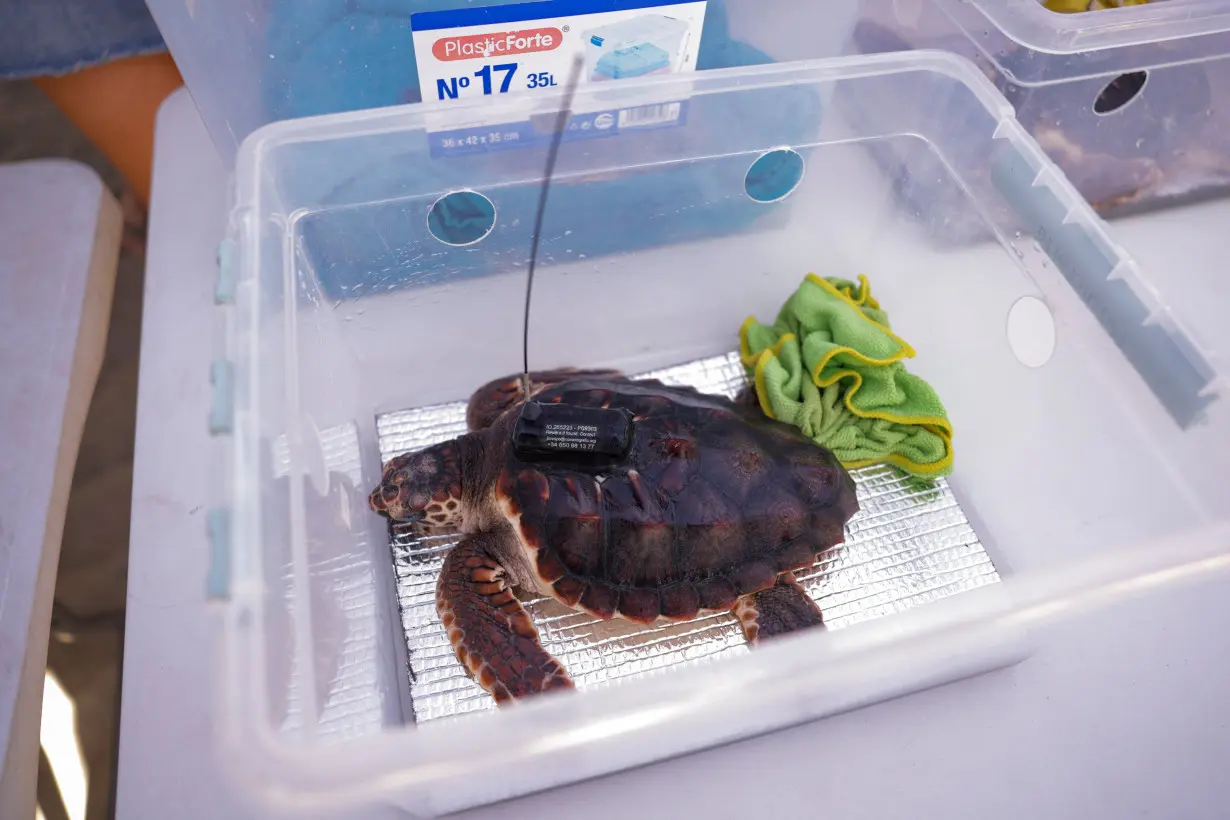
Beachgoers of all ages snapped pictures and listened to explanations from marine life experts about the loggerheads and their habits at a canopied stand.
When the eggs hatched, the baby loggerhead turtles weighed 10 grams (0.02 lb) and have now grown to weigh around 1 kg.
The females are expected to return to the Puerto Banus beach in about 20 years because they always return to lay eggs in the place where they first enter the sea, Gavira said, adding that the scientists expected the turtles to stay in the Mediterranean.
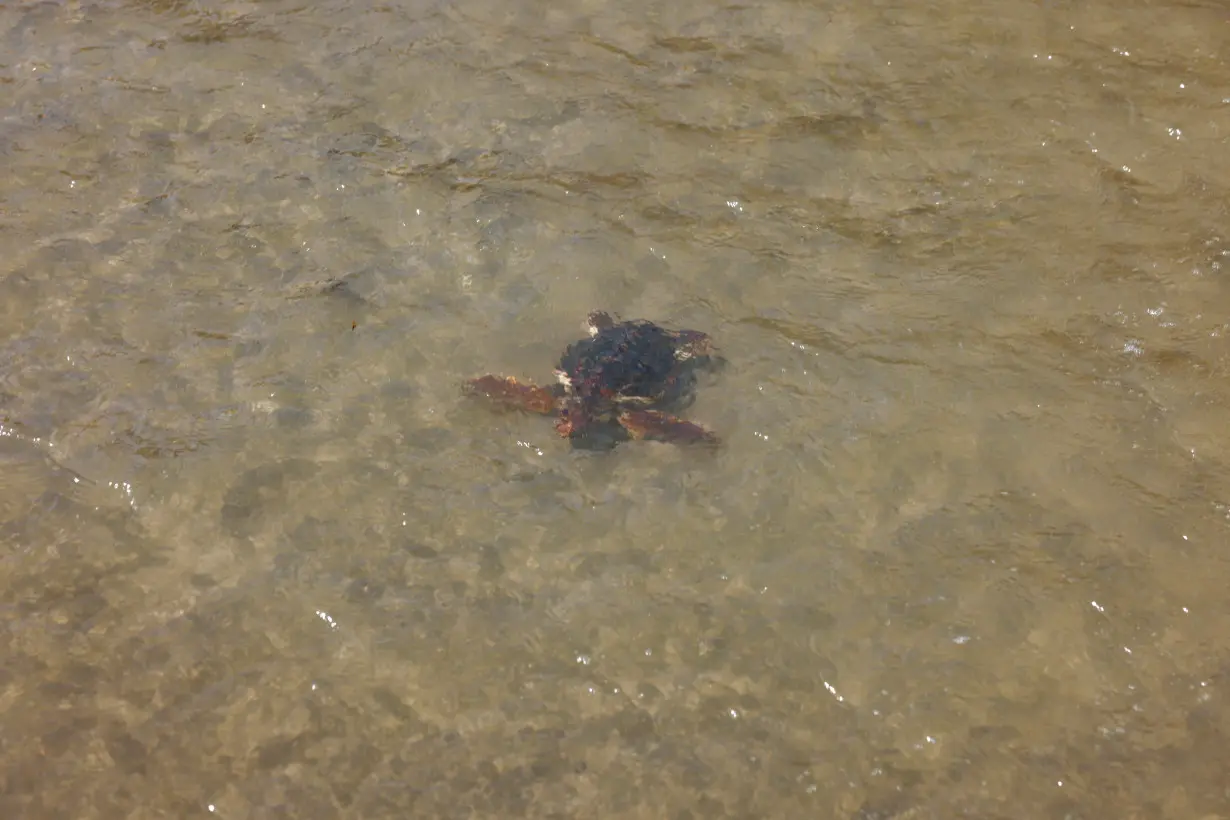
An adult loggerhead sea turtle weighs around 135 kg (297 lb) on average and its carapace is 90 cm (35 inches) long. They reach sexual maturity within 17–33 years and have a lifespan of up to 67 years.
(Writing by Andrei Khalip, Editing by William Maclean)
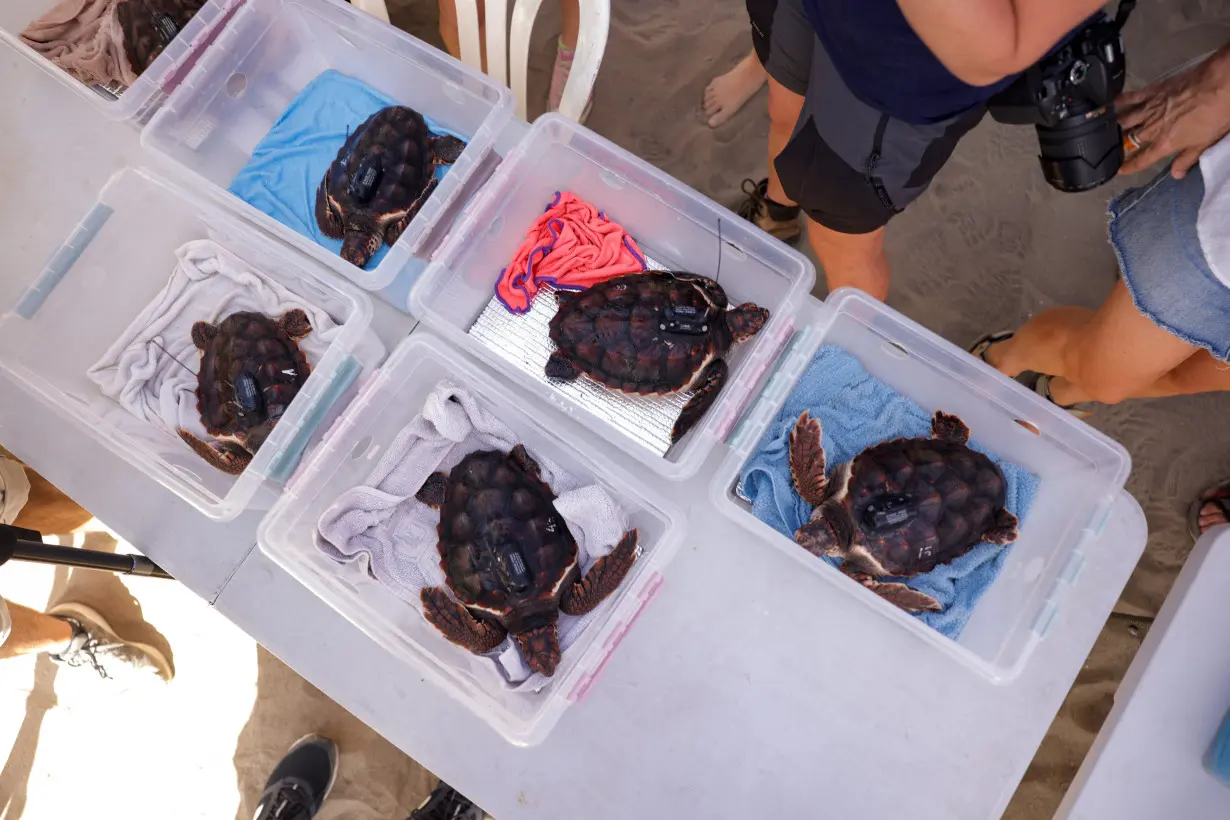
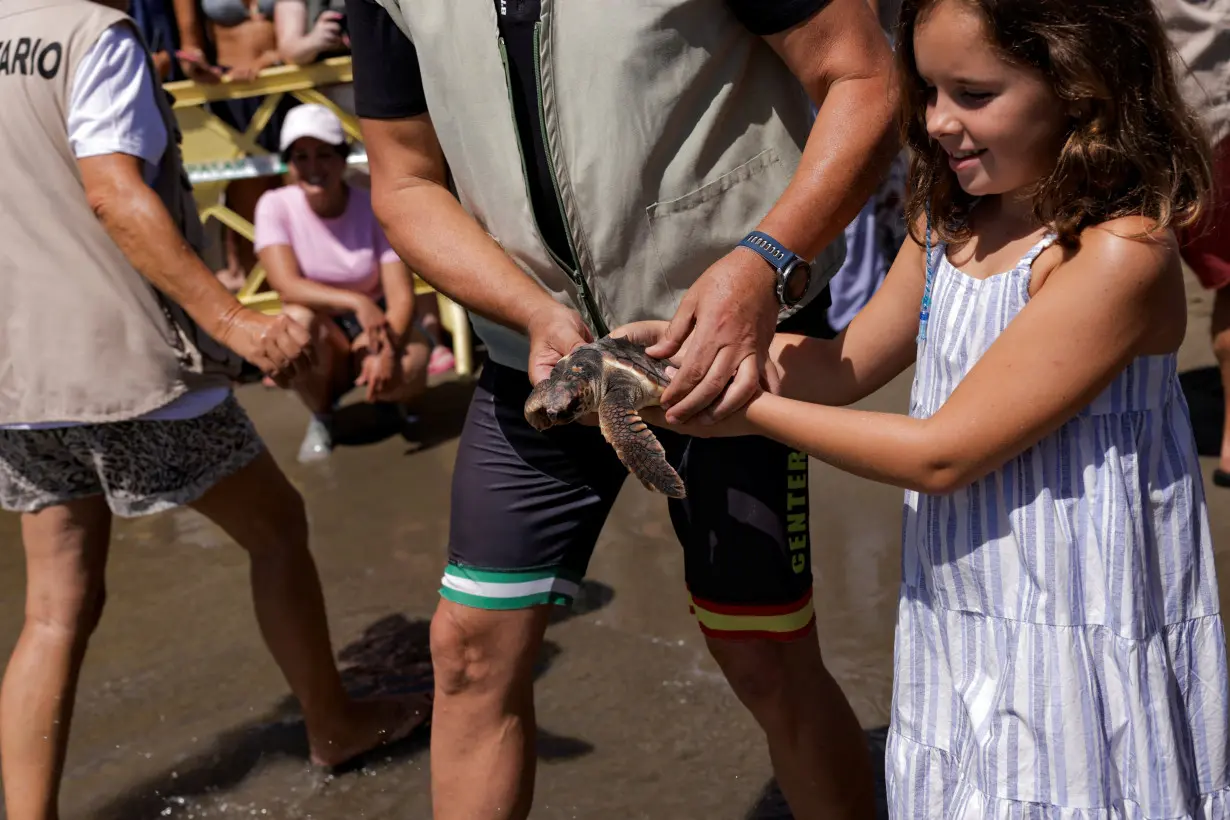

 Biden promised to turn the page on Trump. Now he's being replaced by him
Biden promised to turn the page on Trump. Now he's being replaced by him
 Firefighters prepare for increasing gusts following brief reprieve for LA area
Firefighters prepare for increasing gusts following brief reprieve for LA area
 John Ratcliffe, tapped by Trump to lead the CIA, will face questioning in the Senate
John Ratcliffe, tapped by Trump to lead the CIA, will face questioning in the Senate
 Nippon Steel wants to work with Trump administration on US Steel deal, Mori tells WSJ
Nippon Steel wants to work with Trump administration on US Steel deal, Mori tells WSJ
 After cable damage, Taiwan to step up surveillance of flag of convenience ships
After cable damage, Taiwan to step up surveillance of flag of convenience ships
 BOJ will raise rates if economy, price conditions continue to improve, Ueda says
BOJ will raise rates if economy, price conditions continue to improve, Ueda says
 Manatees congregate in warm waters near power plants as US winter storms graze Florida
Manatees congregate in warm waters near power plants as US winter storms graze Florida
 AAPI adults prioritize immigration, but split on mass deportations: AP-NORC/AAPI Data poll
AAPI adults prioritize immigration, but split on mass deportations: AP-NORC/AAPI Data poll
 As Los Angeles burns, Hollywood's Oscar season turns into a pledge drive
As Los Angeles burns, Hollywood's Oscar season turns into a pledge drive
 As fires ravage Los Angeles, Tiger Woods isn't sure what will happen with Riviera tournament
As fires ravage Los Angeles, Tiger Woods isn't sure what will happen with Riviera tournament
 Antetokounmpo gets 50th career triple-double as Bucks win 130-115 to end Kings' 7-game win streak
Antetokounmpo gets 50th career triple-double as Bucks win 130-115 to end Kings' 7-game win streak
